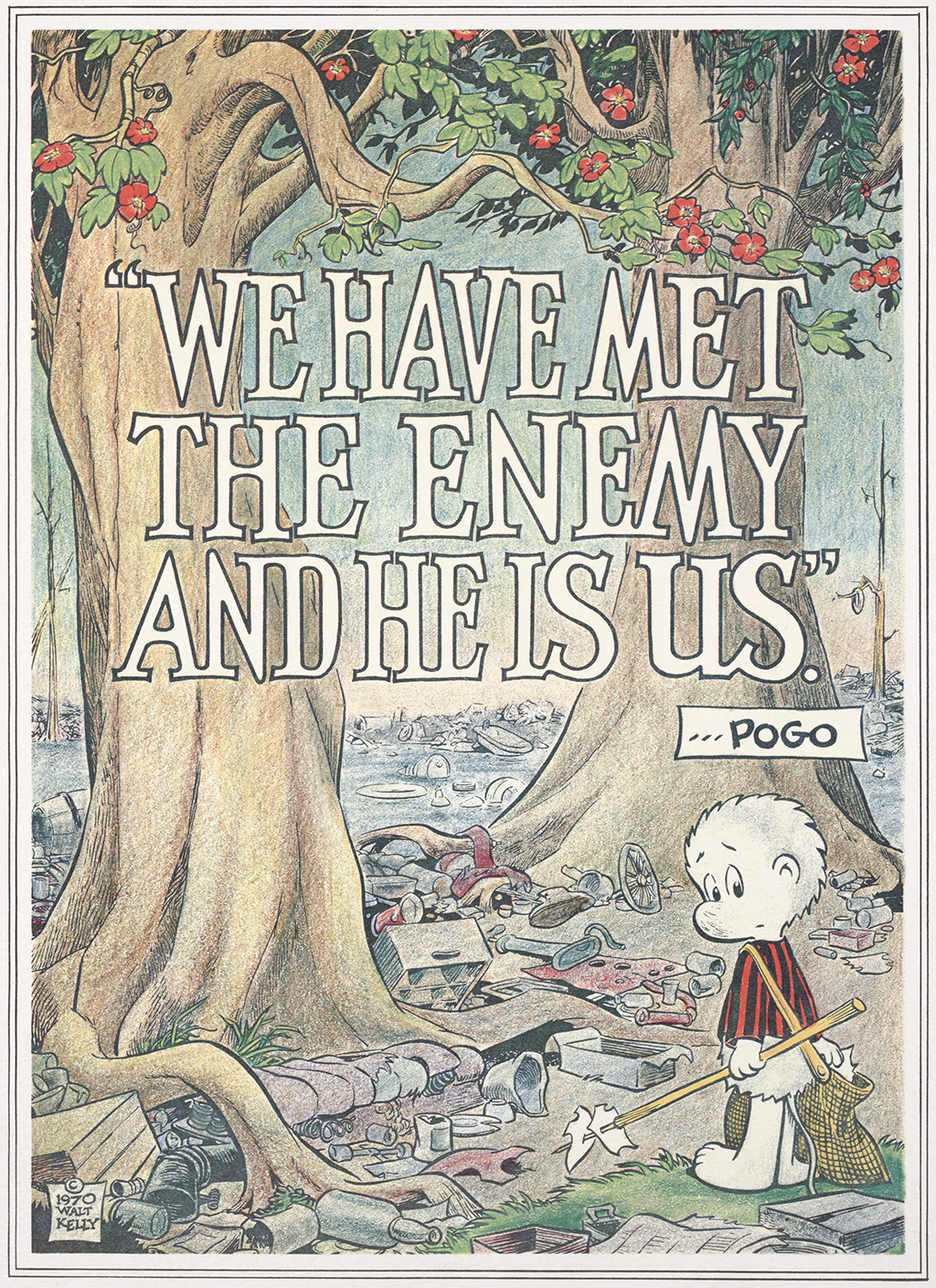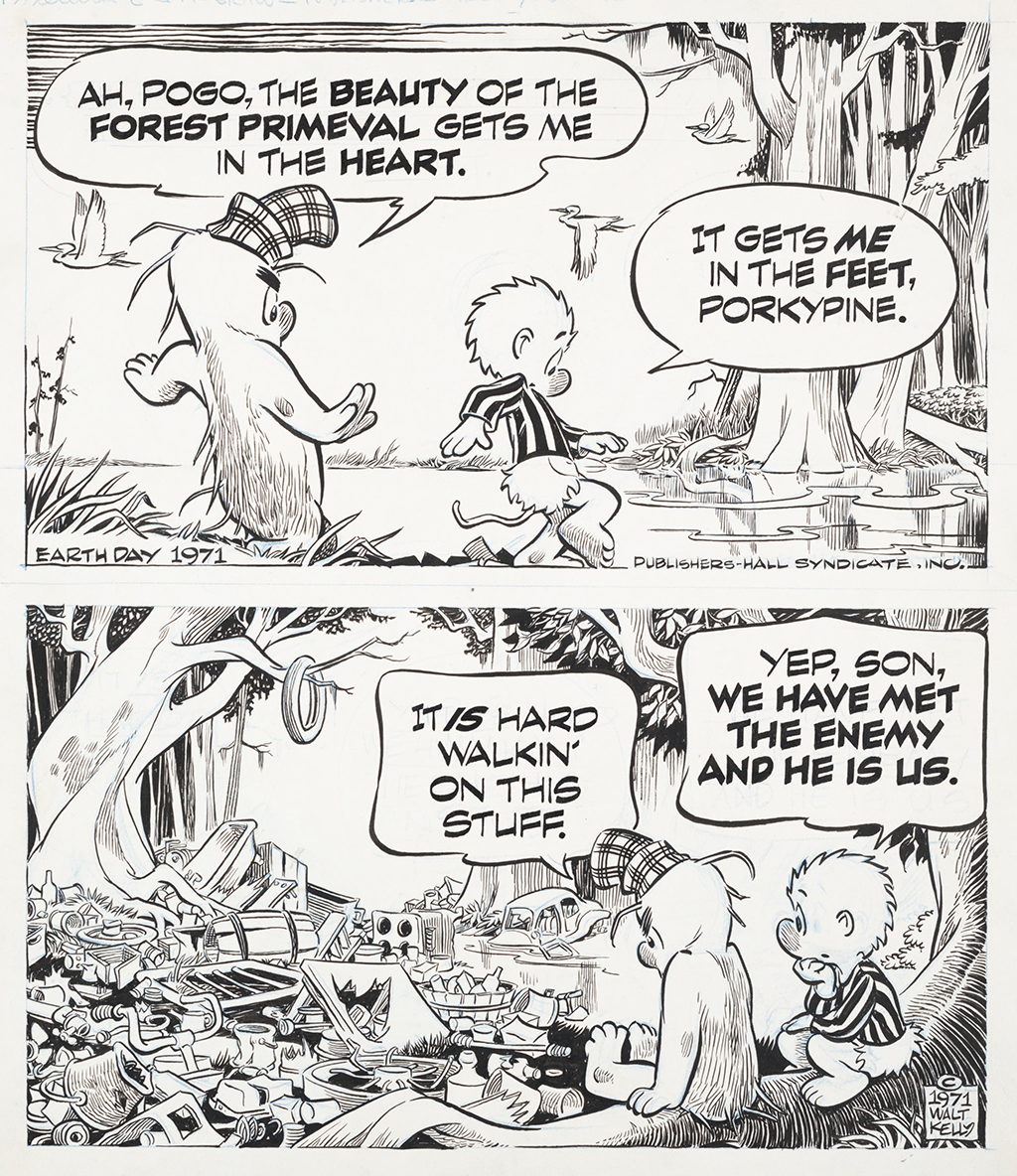We Have Met the Enemy

Every once in awhile, a piece of writing stands out in a way that makes you stop, if for a moment, to marvel at the construction of its language and think how the author just did what they did to you; for me, this usually occurs in the pages of a novel, where an author sparks a re-reading of a paragraph or a page in a sense of wonder and discovery, similar to watching the experience of watching an astonishing sports feat on rewind, over and over and over.
This time, though, the experience arrived in a newsletter and, while this might be odd coming from someone who writes a newsletter (and that you are reading right now), this sensation typically doesn't me when reading this humble medium.
Here's what did it to me. I was reading merrily along when I was struck by the beauty hammer of this passage about the the influence of AI on the Nobel Prizes and whether the human or the tool has become more important in judging these accolades.
"No human can exist alone — and our machines definitely can’t, at least not yet. What they do with their time reflects the choices made by us. What they discover with it is a distillation of what we ourselves have learned, or hope to. A.I. is us: a grand sampling of humanity, a better sum of parts than so far we’ve managed to assemble each on our own. That’s worth a prize or two."
Hats off to Alan Burdick and Katrina Miller, reporters on the science beat for the New York Times, who were covering the Nobel Prizes in the October 13, Sunday Morning Newsletter, for collaborating on wonderful writing that holds a mirror to AI and catches our reflection in it at this uncomfortable stage of our coexistence.
So, no head-scratching words (distillation might be the closest, listed as high school vocabulary) or flights of fancy in sentence scaffolding, just basic words strung together in a way that made me stop and think – and also accomplished the magic trick of dislodging a fragment in my brain that had blocked a pathway in my understanding of AI.
It made me see that AI isn't an object, a thing to be considered in isolation, an "other." AI is "us," as the authors wrote. While my realization may have come later than yours (and might make fans of The Singularity in Silicon Valley nod their heads, yes, YES!), it nevertheless helps me understand my role in its development. I am not merely a bystander; I am an active force pushing its development as a civic tool for good, with guidelines and rules for how I want it – as an extension of myself – to be used.
Yes, I am but one data point in a sea of 8+ billion human beings and fantastical processing power, neither of which I can't really comprehend. But hasn't that always been the case?
Old Fogey Alert: I'm old enough to remember the cartoon, Pogo, created by Walt Kelly. Pogo used a phrase that lives with us still, and it's especially poignant that Pogo first uttered these words on a poster about pollution for the first Earth Day in 1970: "We have met the enemy and he is us."

The same goes for AI. We have met the enemy and he/she/it is us.
AI will solve diseases that have bedeviled us for ages. It will discover new solutions to help fight climate change (even as it consumes ungodly amounts of energy). And at the same time, it will rock a seismic change in the way we work, and who works, that I'm unsure our society will be able to absorb in the short term – let alone the many other negatives that will be marshaled by darker forces.
The question has always been: Can WE rise to our better selves? If we can, then it's possible for AI to do the same as well.
Godspeed, friends.
Russ
P.S. Next Thursday we'll publish the second interview in our series of social entrepreneurs making pivots, this with Dan Kurzrock of Upcycled Foods, Inc. Stay tuned – it's a good one.
P.S.S. Here's a nice write-up from The Ohio State University Libraries if you're interested in learning more about Walt Kelly and his character Pogo's seminal saying.
